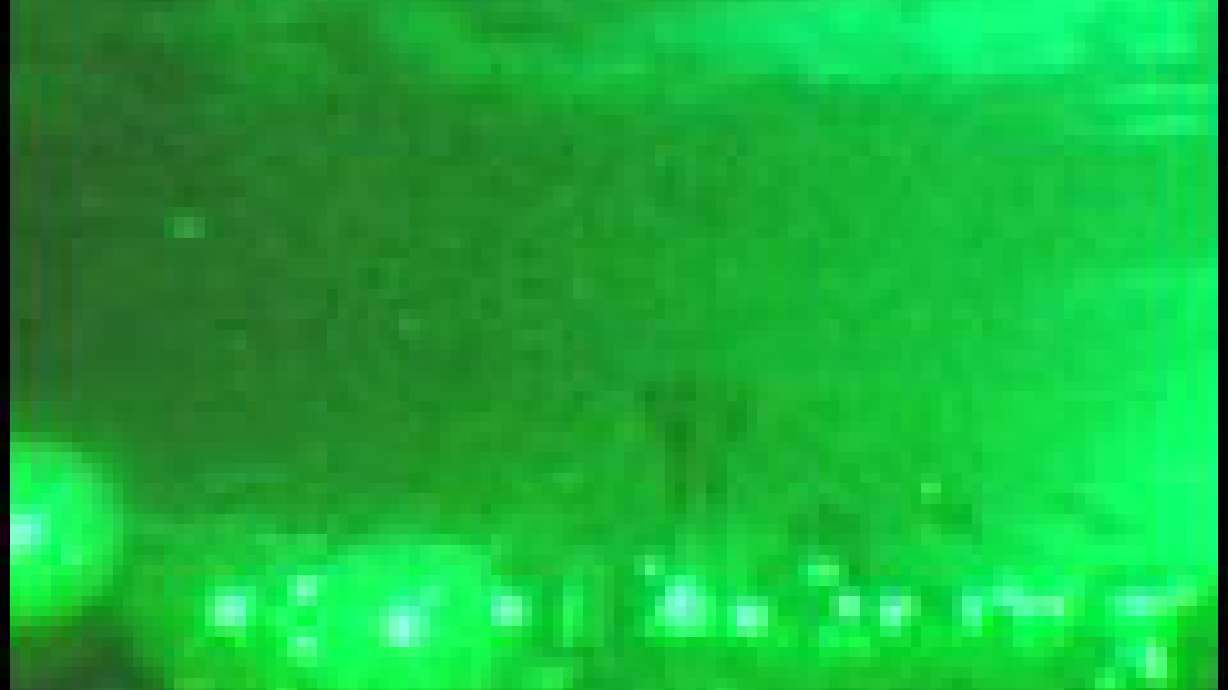Estimated read time: 4-5 minutes
This archived news story is available only for your personal, non-commercial use. Information in the story may be outdated or superseded by additional information. Reading or replaying the story in its archived form does not constitute a republication of the story.
BAGHDAD, Iraq (AP) -- Aircraft screamed in low over the Iraqi capital, shaking buildings early Monday with the heaviest U.S.-led bombardment in several nights. As anti-aircraft guns responded, a mosque called out "God is great" apparently to boost Iraqis' morale.
Heavy explosions hit Baghdad through the night. One large explosion shook a Ministry of Planning building within the Old Palace, a presidential compound hit in earlier attacks.
It appeared to be the strongest airstrikes since Friday night, when Tomahawk missiles rained down on the city of 5 million people, smashing several of Saddam Hussein's palaces and government buildings.
Before each blast, low-flying aircraft could be heard. The loudspeaker from a mosque's minaret blared, "Allahu Akbar" -- "God is great" -- and "Thanks be to God" -- apparently a morale boost, since it was well before the call to dawn Muslim prayers.
Reports that a coalition plane had been downed over Baghdad sparked a search Sunday by hundreds of Iraqi police and security agents for any survivors. They shot into the reeds and shallow water alongside the Tigris River. They set fire to brush in some spots, and small boats patrolled the river's edge.
At the U.S. Central Command in Qatar, Army Lt. Gen. John Abizaid denied that any coalition planes had been shot down.
"No planes have been shot down. No pilots have parachuted," he said. "You can see by their actions -- shooting into the water -- that their search-and-rescue techniques leave a lot to be desired," he added.
An Iraqi military spokesman, Lt. Gen. Hazem Al-Rawi, said Iraqi forces have shot down five allied warplanes -- all but one of them in Baghdad -- and two helicopters since the war began.
Lebanese TV Al-Manar, owned by the Islamic militant group Hezbollah, said a British pilot was captured in Baghdad and that the search along the Tigris was for his co-pilot. Qatari-based Al-Jazeera satellite TV said a Western pilot had been captured and another was being sought.
Security agents swarmed to the Tigris after witnesses reported seeing parachutes fall alongside its west bank.
The search quickly drew a crowd. Traffic piled up on bridges as hundreds parked their cars to get out and watch. Some brought their children, others waved huge Iraqi flags from their car windows.
During the search, repeated explosions could be heard at a distance. In the sky were vapor trails and dark clouds from fuel the Iraqis were burning to conceal targets in the capital.
Not far from the scene, life proceeded normally in the commercial al-Karada area in central Baghdad. Many food and butcher stores were open, as were barber shops, cafes and restaurants selling shawerma sandwiches.
Meanwhile, the Iraqi military lauded what it called its forces' success at An Nasiriya, a major crossing point on the Euphrates, where fighting Sunday inflicted the first heavy casualties of the war on U.S. forces and for the first time left American prisoners in Iraq hands.
The U.S. military said up to nine Marines were killed in one battle, while a dozen Army troops were missing after another ambush. Al-Rawi said 25 Americans were killed in the fighting with "the heroic" Iraqi 11th Division and that "a number of their mercenaries were captured."
Five American prisoners were shown on Iraqi television, along with at least four bodies that the Iraqis said were those of U.S. soldiers.
Iraqi Vice President Taha Yassin Ramadan, guarded by at least a half-dozen heavily armed soldiers at his news conference, also denied speculation that Saddam had been wounded by coalition attacks. The official Iraqi News Agency said Saddam met with top advisers Sunday.
Earlier in the day, Iraq said 77 civilians were killed Saturday in Basra -- where allied forces captured the airport and a key bridge -- and 503 were wounded by coalition air strikes across the country.
German public television ARD said a cruise missile hit a residential area in Baghdad on Sunday morning, destroying five houses and injuring at least two people.
Iraqi state television said airstrikes also hit the city of Tikrit, Saddam's hometown. Al-Arabiya, an Arab satellite television news channel, reported that four people were killed in those attacks.
As U.S.-led troops raced through the desert toward Baghdad and American commanders said Saddam's regime was losing control, Iraqi officials insisted their situation was brighter.
Information Minister Mohammed Said al-Sahhaf praised what he described as heroic resistance Sunday by Iraqis in the southern port Umm Qasr, where coalition troops engaged in street-to-street fighting with defenders.
"Iraqi fighters in Umm Qasr are giving the hordes of American and British mercenaries the taste of definite death," Al-Sahhaf said. "We have drawn them into a quagmire and they will never get out of it."
In Washington, Gen. Richard Myers, chairman of the Joint Chiefs of Staff, said the Iraqis clearly "are not a beaten force."
"The hardest part is yet to come," he said Sunday on ABC's "This Week."
Myers also said that any surrender negotiations with Iraqis were going on at a "lower level" and involved individual units -- not top Iraqi officials.
"They have chosen another path," he said. "It's obviously going to be a very disastrous path for the Iraqi regime, and everybody would like to see this war end. And it's up to them."
(Copyright 2003 by The Associated Press. All Rights Reserved.)








